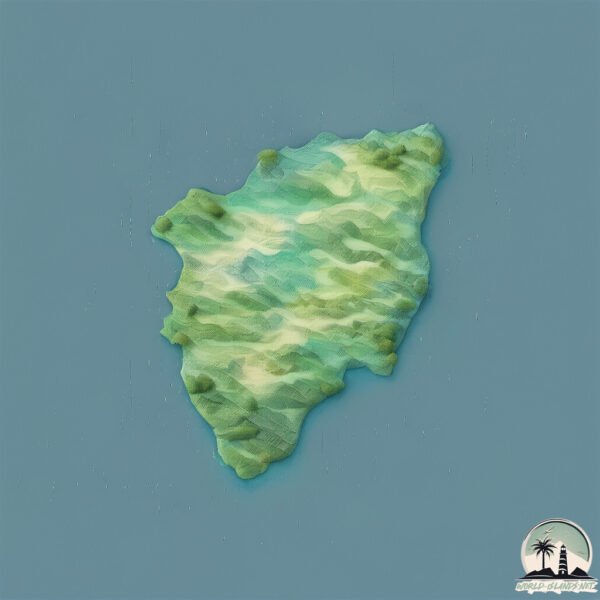Suwanose-jima

Welcome to Suwanose-jima, a Temperate island in the Eastern China Sea, part of the majestic Pacific Ocean. This guide offers a comprehensive overview of what makes Suwanose-jima unique – from its geography and climate to its population, infrastructure, and beyond. Dive into the details:
- Geography and Size: Explore the island’s size and location.
- Climate and Weather: Weather patterns and temperature.
- Topography and Nature: Uncover the natural wonders of the island.
- Infrastructure and Travelling: Insights on reaching, staying, and making the most of your visit.
- News and Headlines: Latest News.
Geography and size of Suwanose-jima
Size: 26.3 km²
Coastline: 31.5 km
Ocean: Pacific Ocean
Sea: Eastern China Sea
Continent: Asia
Suwanose-jima is a Medium Island spanning 26 km² with a coastline of 31 km.
Archipel: Ryukyu Islands – A chain of Japanese islands stretching southwest from Kyushu to Taiwan, known for their unique Okinawan culture and subtropical climate.
Tectonic Plate: Yangtze – A minor tectonic plate in East Asia, often considered a part of the Eurasian Plate. It’s primarily continental and covers the Yangtze River area in China, playing a significant role in the region’s geological stability.
The geographic heart of the island is pinpointed at these coordinates:
Latitude: 29.64052399 / Longitude: 129.71327966
Climate and weather of Suwanose-jima
Climate Zone: Temperate
Climate Details: Humid Subtropical Climate
Temperature: Hot Summer
Climate Characteristics: With continuous rainfall and hot summers, this climate is common in some coastal regions, supporting diverse vegetation.
Topography and nature of Suwanose-jima
Timezone: UTC+09:00
Timezone places: Asia/Tokyo
Max. Elevation: 649 m
Mean Elevation: 244 m
Vegetation: Evergreen Broadleaf Forest
Tree Coverage: 40%
The mean elevation is 244 m. The highest elevation on the island reaches approximately 649 meters above sea level. The island is characterized by Plateau: Elevated flatlands rising sharply above the surrounding area, with a maximum elevation over 500 meters but a mean elevation less than 300 meters, forming unique highland areas on islands.
Dominating Vegetation: Evergreen Broadleaf Forest
Characterized by dense, lush canopies of broadleaf trees that retain their leaves year-round. These forests are typically found in tropical and subtropical regions and are known for their high biodiversity. Suwanose-jima has a tree cover of 40 %.
Vegetation: 8 vegetation zones – Very Highly Diverse Island
Islands in this range are ecological powerhouses, showcasing a wide array of vegetation zones. Each zone, from lush rainforests to arid scrublands, coastal mangroves to mountainous regions, contributes to a complex and interdependent ecosystem. These islands are often hotspots of biodiversity, supporting numerous species and intricate ecological processes.
Infrastructure and Travelling to Suwanose-jima
Does the island have a public airport? no.
There is no public and scheduled airport on Suwanose-jima. The nearest airport is Yakushima Airport, located 129 km away.
Does the island have a major port? no.
There are no major ports on Suwanose-jima. The closest major port is KIIRE, approximately 210 km away.
The mean population of Suwanose-jima is 6 per km². Suwanose-jima is Gently Populated. The island belongs to Japan.
Continuing your journey, Nakano-shima is the next notable island, situated merely km away.
Light Mag. 3.6 Earthquake - East China Sea, 78 km Southeast of Suwanose-jima Island, Japan Apr 11,



Japan is classified as Developed region: G7: Group of Seven – Major advanced economies, including Canada, France, Germany, Italy, Japan, the United Kingdom, and the United States. The level of income is High income: OECD.
News – Latest Updates and Headlines from Suwanose-jima
Stay informed with the most recent news and important headlines from Suwanose-jima. Here’s a roundup of the latest developments.
Please note: The data used here has been primarily extracted from satellite readings. Deviations from exact values may occur, particularly regarding the height of elevations and population density. Land area and coastline measurements refer to average values at mean high tide.
